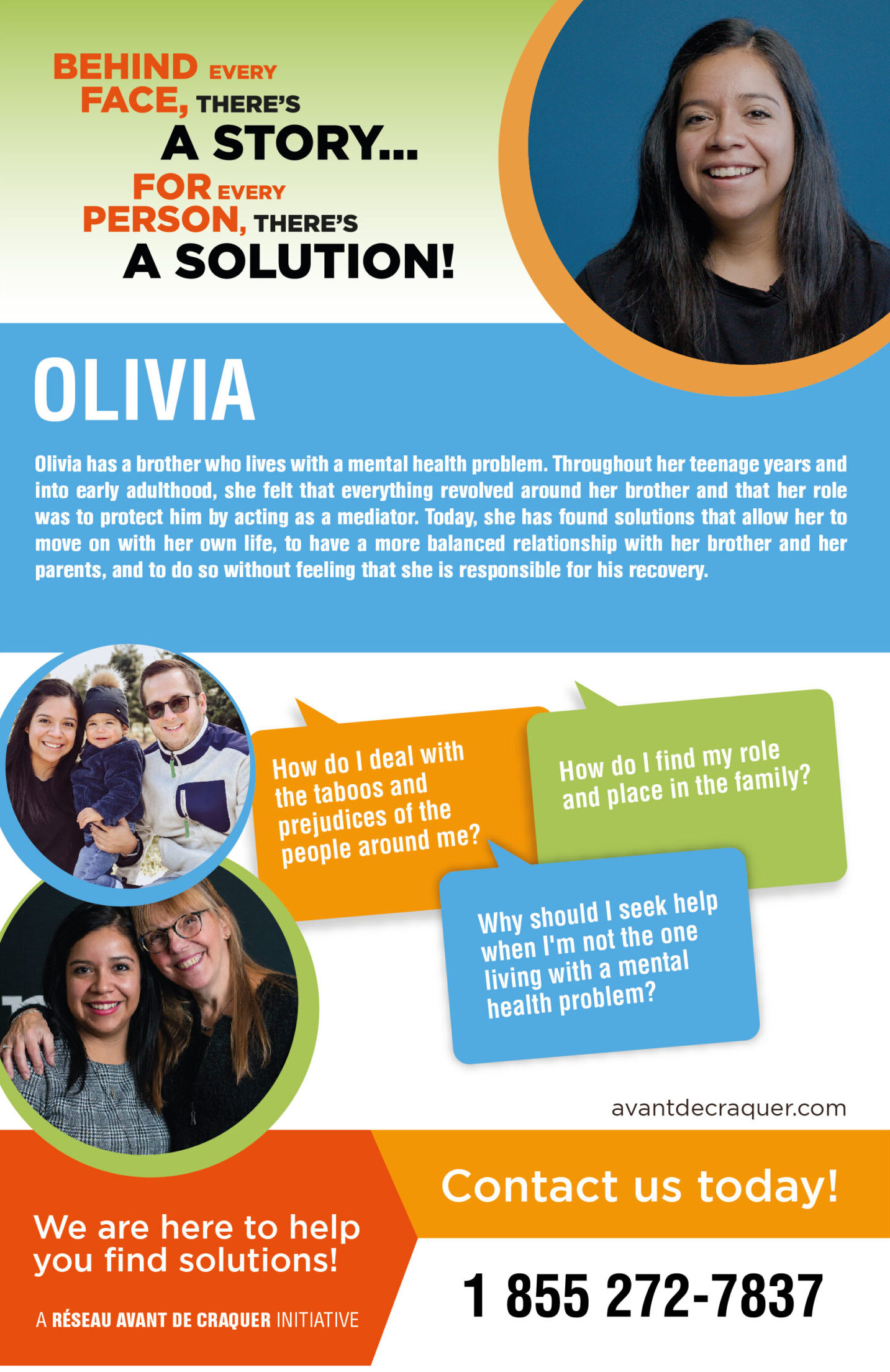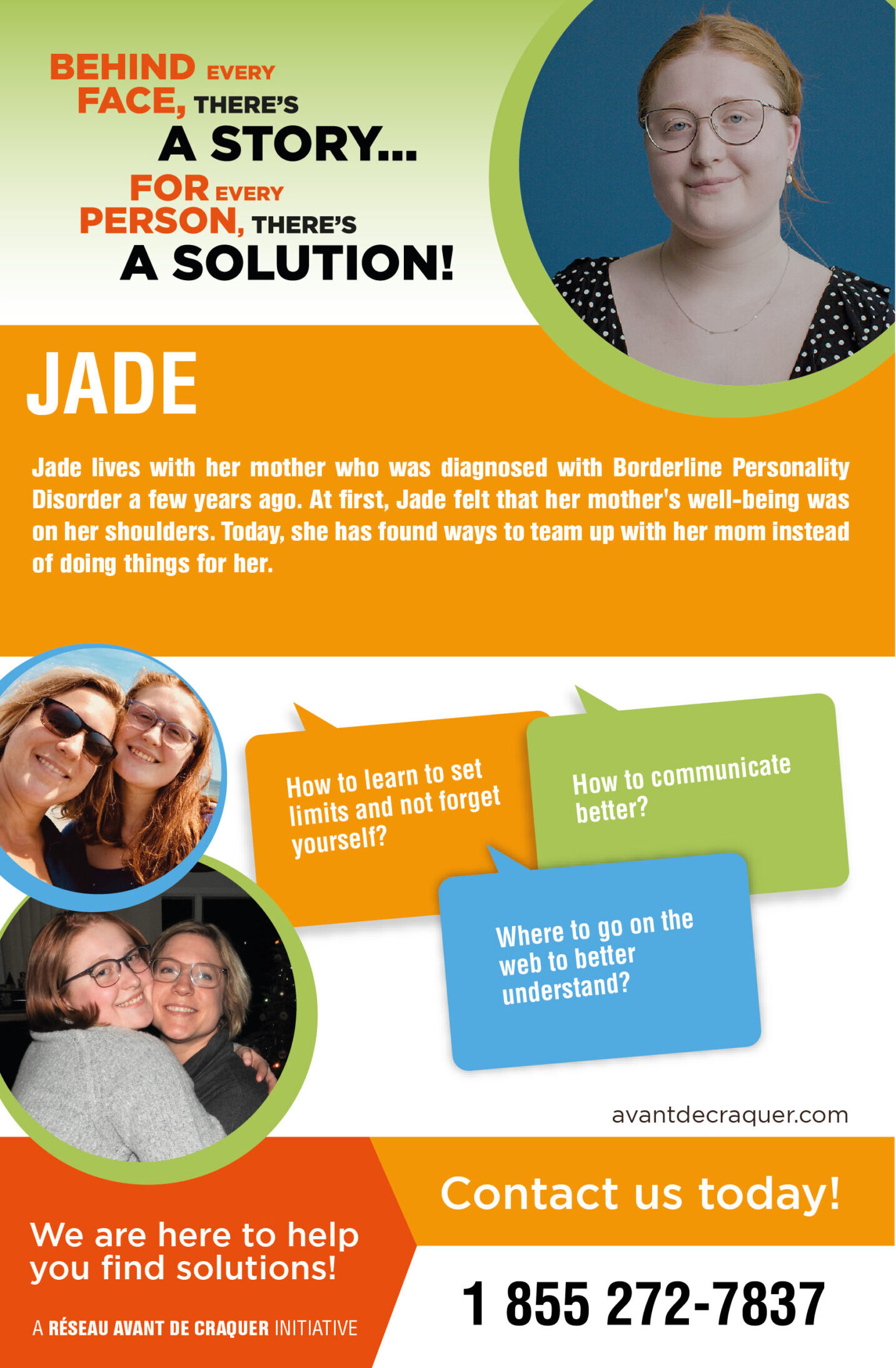To get started
Frequently Asked Questions
Since learning of my loved one's mental illness, my life has been upended. How can I get it back on track?
Each person will react differently to this news, depending on their life experiences. The emotions experienced (anger, sadness, guilt, etc.) will be expressed differently according to several factors, including age, education, gender, life experience, etc.
In order to navigate this new situation, it is important to allow all loved ones to recognize that they are experiencing a loss and that this leads to new concerns and emotions. These losses often need to be grieved. To move forward, these losses will need to be identified and their resulting emotions expressed.
Since finding out about my loved one's illness, I have assumed a lot of responsibility to avoid overwhelming other family members. Did I make the right decision?
Despite the fact that you would like to protect everyone you love from the effects of the illness, it is impossible to do so. You should approach the problem as you would have before your loved one’s illness by involving all those concerned by the decision. Those who are most affected by the situation should have the opportunity to express themselves in the search for solutions.
Could something I said or did have caused or advanced the mental illness of my loved one?
You should look at mental health problems as you would physical health problems and recognize that they are phenomenons over which you have you have little control. Mental illness cannot be caused by one individual factor. It is the result of many factors, and you are not not responsible for what happened.
I feel powerless or isolated from the medical network. Where can I find help?
Health professionals are bound by confidentiality laws that do not allow them to disclose certain information about their patients. So, it is not surprising that you feel powerless or isolated from the system the difficulties your loved one is experiencing.
The best way to find answers to your questions is to contact the family service organizations in your area. There you will find an attentive ear and a range of services adapted to your needs.
After a difficult crisis situation, the doctor chose to hospitalize my loved one against their will for their protection, but they can't medicate them. Why?
When a physician confines a person to a facility against their will to ensure their safety or that of others, they do so with the authorization of the Court of Quebec. This confinement is temporary, since it deprives the person of their freedom and integrity, two fundamental principles of the Charter of Rights and Freedoms. This authorization is an exceptional measure that only allows the person to be subjected to preventive care such as monitoring, physical control and professional observation.
If the person refuses treatment, the treating physician and the hospital will have to submit a new application to the courts to obtain authorization.
Obviously, the team will try to avoid this option by attempting to convince the person of the benefits of the medication.

































